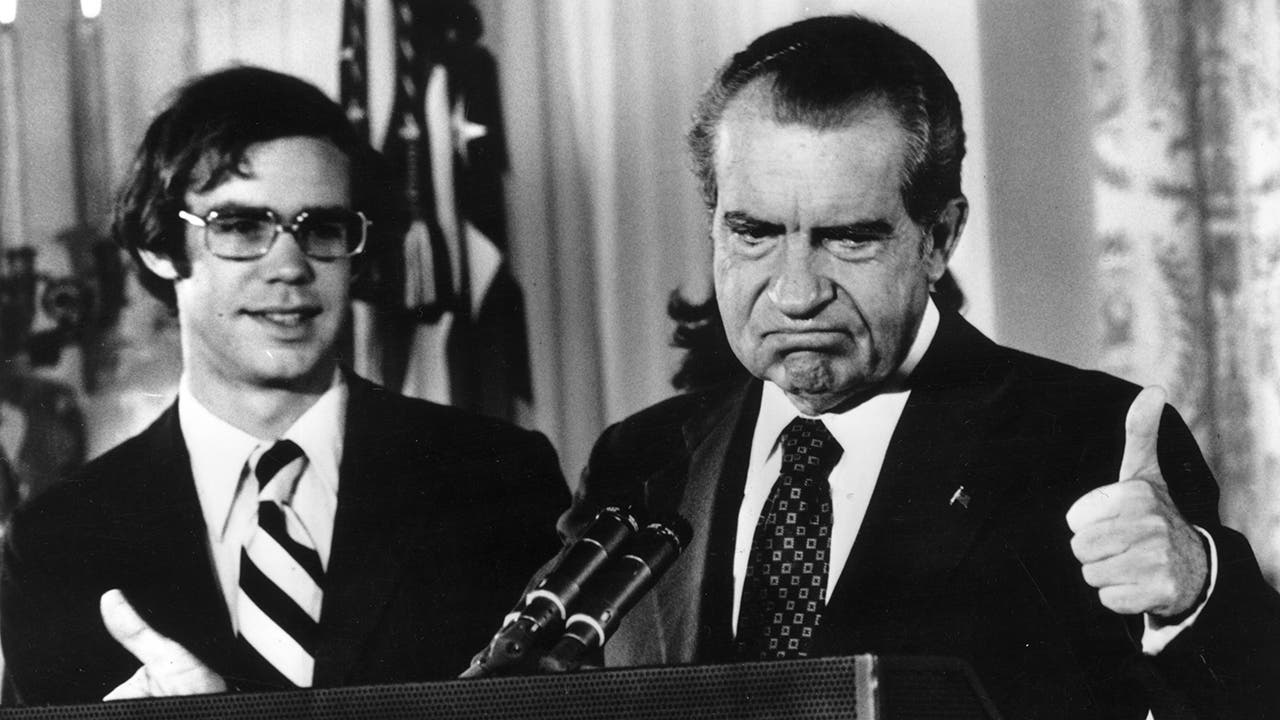President Richard Nixon, the 37th president of the United States, made a historic announcement on August 8, 1974, that he would be resigning from office. In his speech delivered from the Oval Office, Nixon stated that his resignation would take effect “at noon tomorrow.” On August 9, Gerald Ford would assume the presidency as the nation’s 38th president. This marked the first time in U.S. history that a president resigned from the position. Nixon’s decision was prompted by the impending threat of impeachment due to the Watergate scandal, in which his administration was involved in a cover-up of spying activities on the Democratic Party’s headquarters during the election.
Nixon emphasized in his speech that he always strived to do what was best for the nation in all his public decisions. Despite the challenges posed by the Watergate scandal, he believed it was his duty to persevere and complete his term of office. However, he acknowledged that he did not have the support of Congress to continue. Although leaving office before the completion of his term went against his instincts as a non-quitter, Nixon recognized that America needed a full-time president and Congress to address the pressing issues at hand, both domestically and internationally.
With the goal of fostering healing in America, Nixon decided to resign from the presidency, hoping it would expedite the process of reconciliation. He expressed regret for any harm that may have occurred during the events leading up to his decision and acknowledged that some of his judgments may have been flawed. Nixon expressed gratitude to his family, friends, and supporters who stood by him. He also extended a message of unity, urging the nation to come together and support the incoming president for the benefit of all Americans.
Following Nixon’s resignation, Gerald Ford assumed the presidency, serving the remainder of Nixon’s term before losing the 1976 election to President Jimmy Carter. One month after Nixon’s resignation announcement, Ford granted him a full pardon for any offenses committed during the Watergate scandal, sparing Nixon from facing legal consequences.
Despite the controversy surrounding his presidency, Nixon’s legacy includes notable achievements such as his role in détente with the Soviet Union during the Cold War. He became the first U.S. president to visit Moscow in 1972, signing significant treaties with Soviet General Secretary Leonid Brezhnev. Even after leaving office, Nixon continued to contribute to U.S. foreign policy through his international travels and extensive experience.
Nixon passed away on April 22, 1994, leaving behind a complex legacy. While his presidency was marred by scandal, he made significant strides in international relations and offered insights into global issues even after his departure from the White House.
Denial of responsibility! VigourTimes is an automatic aggregator of Global media. In each content, the hyperlink to the primary source is specified. All trademarks belong to their rightful owners, and all materials to their authors. For any complaint, please reach us at – [email protected]. We will take necessary action within 24 hours.


